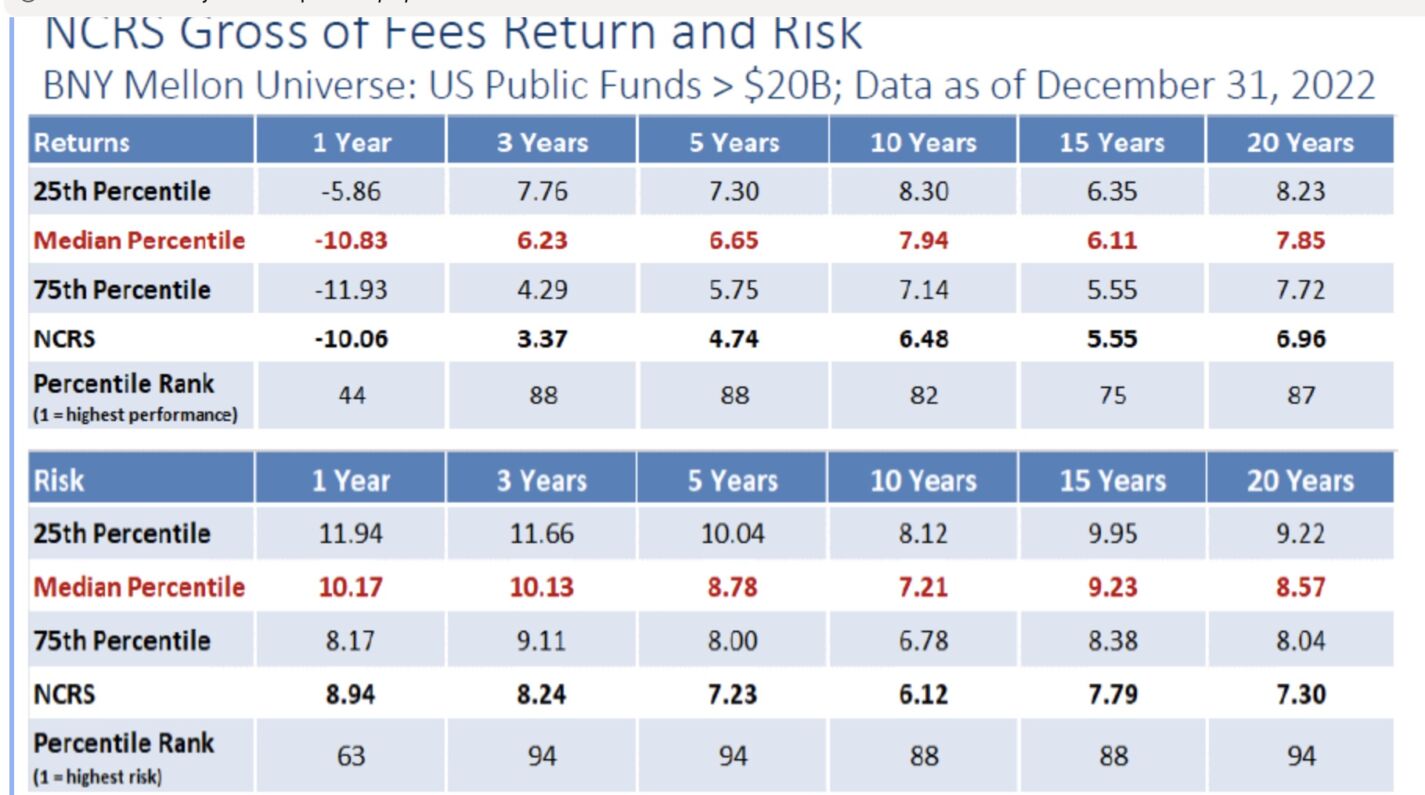North Carolina’s state pension system was among the victims of the recent collapse of two large Silicon Valley, California banks, with the loss of millions in stock at both banks.
“We have small exposures to both Silicon Valley Bank and Signature Bank as shareholders of their stock,” according to an emailed statement sent from State Treasurer Dale Folwell’s office. “As of 2/28, we had a total of approximately $10.1 million of Silicon Valley Bank stock as well as approximately $7.8 million of Signature Bank stock across the DB Plan, the DC Plan, and our AGPIP portfolios. This equates to less than 0.01% of the value of all three of these portfolios relative to the estimated value of the retirement plans of $110 billion.”
Deputy Treasurer/Spokesman Frank Lester said it is unknown if the money, which the office says is a sliver of the total retirement system value, will be recovered.
Credit Suisse, a third bank in the headlines, has also been left vulnerable due to the Silicon Valley Bank collapse. After their stocks plummeted 22% Wednesday, shares surged Thursday after the Swiss central bank agreed to loan the bank up to 50 billion francs ($54 billion).
“These measures demonstrate decisive action to strengthen Credit Suisse as we continue our strategic transformation to deliver value to our clients and other stakeholders. We thank the SNB and FINMA as we execute our strategic transformation,” said Credit Suisse CEO Ulrich Koerner.
Credit Suisse is a major employer in the Research Triangle Park and has been since landing there in 2017 under a promise to create 1,200 additional jobs in technology and finance. As reported by The Triangle Business Journal, Credit Suisse has created 833 jobs as of 2021, and opened a $100 million campus in RTP. in 2017, Credit Suisse received a Jobs Development and Investment Grant (JDIG) requiring that it meet job creation and investment targets to get $40.2 million in reimbursements.
This week’s loan may not head off a takeover, according to Bloomberg.com, analysts at JPMorgan Chase are predicting such an event. In the fall Credit Suisse announced more than 27,000 layoffs as they attempted to restructure.
Lester said the state does have some exposure to the bank.
“We have approximately $38 million in Fixed Income exposure (Bonds) and $2.6 million in equity exposure (stocks) across the Defined Benefit Plan, the Defined Contribution Plan, and Ancillary Governmental Participant Investment Program,” he said in the same previously emailed statement. “We have also some exposure through the Galliard Stable Value Fund but we don’t have full transparency into that fund, but any additional exposure is likely to be minimal.”
The treasurer’s office didn’t directly buy the bank stocks but invested in index funds which included the bank shares.
“Anything that’s with a fund manager or is with an index fund, the fund manager makes their own investments, and the sponsor of the index determines what is in the index and what is out,” Folwell told Carolina Journal in a phone interview. “For example, SVB has been in the index for ten years, long before I even got to be the treasurer, but that’s not the point. The point is that it is in the index, and there were losses.”
Folwell said state plan retirees should be reassured that they have one of the most conservatively managed pension plans in the U.S.
“When you look at where we are on a percentile basis, and this is quantifiable, our pension plan, in terms of the percentile versus other pension plans in the United States, we are one of the most conservative pension plans,” he said. “This is the same group that the previous treasurer used, and they come in with a microscope and do a risk assessment of our pension plans.”
Folwell said that such an event creates tremendous buying opportunities for the treasurer’s office.
“We have billions and billions and billions of dollars that we can take advantage of buying opportunities when they come about,” he said.
Again, Folwell said he wanted to reassure the public that he is taking all the steps necessary in the three roles he has in the state to ensure that everything is being looked over meticulously for any other issues.
“As our pension plan, we’re scrubbing every single investment to see if there’s any collateral damage to anything else that just that’s not apparent by just looking at it, he said. “As the chair of the State Banking Commission, Commissioner Bosken and her staff are working diligently to make sure that the 36 banks that we regulate, their state-chartered, are in good shape and that there’s no crisis there. As far as my role as the chair of the Local Government Commission, I am working with the League of Municipalities and the County Commissioners Association to make sure that any cities or counties that may have deposits at any of these places that they’re fully insured.”
On Monday, in an emailed statement regarding the State Banking Commission, Folwell said, “The banks we regulate in North Carolina do not have the same number of unsecured deposits and are more diversified than those troubled banks. At this time, the abbreviation ‘NC’ stands for ‘no crisis.’”
